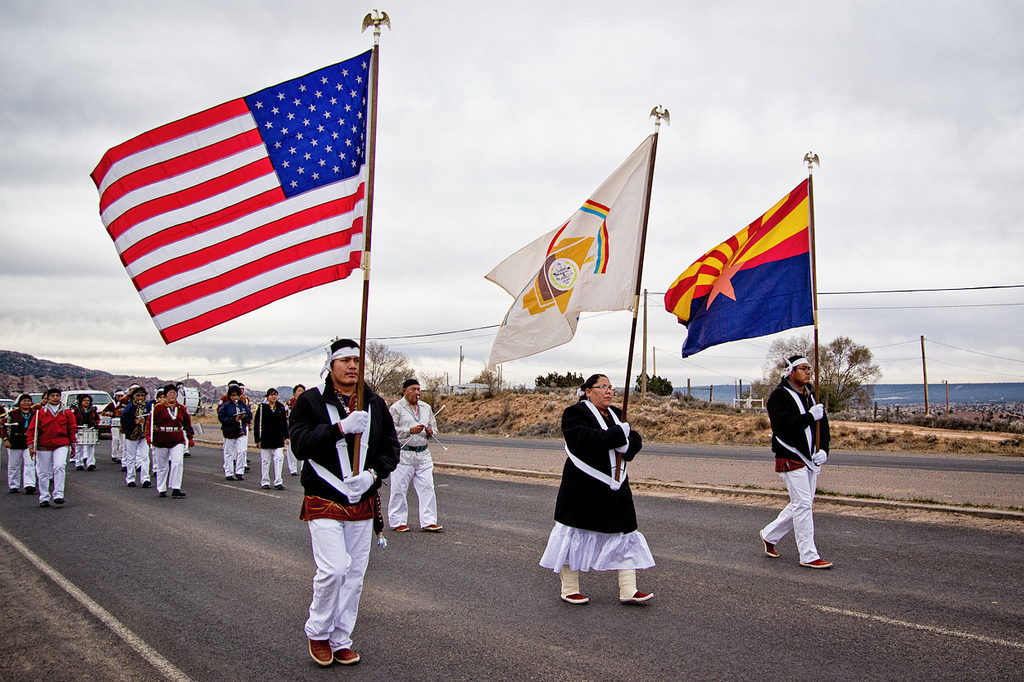Genetic Research in the Navajo Nation
In 2002, the Navajo Nation placed a moratorium on genetic research within its territorial jurisdiction. Among the motivations were concerns about the misuse of data and the potential for privacy violations. Many members of the Navajo Nation were opposed to the moratorium, primarily because of the medical benefits of genetic testing. This month, the Navajo Nation announced that they are considering lifting the moratorium.
Concerns about data misuse are not misguided. The Havasupi Tribe encountered just such a situation recently. In 1989, the Tribe entered into a research arrangement with Arizona State University. The Havasupi experience higher than average rates of Type II Diabetes. The research agreement involved an investigation into a possible genetic link to the disease. The search for such a link was unsuccessful. The genetic material was then used for purposes that were never agreed to by the research participants. The samples were used to study migration, inbreeding, and schizophrenia. A lawsuit was later settled out of court.
Use of genetic material for these purposes is far from innocuous. The mere engagement in these research projects, regardless of the results, has the potential to further stigmatize and exploit Native People. Migration studies can have real demonstrable effects. Native Persons have endured a long and painful history with respect to exploitation of land, and even now have reason to feel that their legal relationship to their land is more tenuous than they would like. Migration studies track the movement of genetic lines through time. Land arrangements are, in many cases, based on historical and cultural understandings of tribal migration. Native Persons may harbor justified concerns about what might happen if these cultural understandings are turned on their heads.
Studies pertaining to inbreeding and schizophrenia are also problematic for a number of reasons. First, different tribes have different cultural attitudes about these issues and the roles that they may have potentially played in tribal history and culture. Cultural taboos with respect to these topics may have led participants in the study to decline the use of their genetic material, had they been asked. What’s more, research projects like these contribute to offensive and harmful stereotypes about Native Persons.
There is good reason to think that there are potentially some very bad consequences to genetic testing in these cases. Data misuse would still be morally problematic, even if the consequences were not dire. There are rights-based considerations involved as well. The researchers at Arizona State failed to secure the informed consent of research participants. The issue of what constitutes informed consent is somewhat philosophically thorny. Patients must have sufficient information about what will happen to their bodies or with their biological material to truly grant permission to go forward.
There is debate about what “sufficient information” or understanding looks like. Whatever it looks like, however, it is clear that Arizona State stopped far from the mark here. After all, they didn’t inform the research participants about other uses for their genetic material at all. As a result, they deprived participants of the opportunity to freely choose to participate in the procedure. Many moral philosophers maintain that this type of behavior is disrespectful of an individual’s very humanity.
In response, some people might claim that the requirements of informed consent when it comes to the donation of biological material are different from the requirements involved when a patient is, say, consenting to a course of medical treatment. Once biological material is donated, any number of things could happen to it. For example, a blood donor doesn’t get to consent to the exact recipient of their donation. For all the donor knows, the blood could be used to save the life of someone that they view as some sort of moral monster. The donor doesn’t get to choose. It’s not the donor’s blood anymore. On the other hand, biological material used for genetic testing might be different—there may be nothing more personal than one’s genetic code. As technology advances and biological material is increasingly used in new forms of research, we must dust off and reevaluate our conceptions of informed consent and the ethics of research.
Another consideration that played some role in the imposition of the moratorium was the opinion of the Navajo society of medicine men, who suggested that genetic testing should be banned because of cultural legends and taboos that prohibit tampering with blood and saliva. Native persons have had much of their culture violently taken from them or forced into new forms. There is moral weight to the idea that cultural traditions should be preserved.
With these considerations in mind, the Navajo Nation moves forward with caution in its revaluation of policy. Those who favor a change in policy argue that there are life-and-death consequences. As it stands, when members of a tribe seek to avail themselves of new genetic technology to help them understand and better treat their medical conditions, they must leave the territorial jurisdiction of the Navajo Nation. This can have real consequences, both financially and medically. If access to genetic information can potentially save lives, that consideration should carry more weight than concerns regarding the mere potential of increased exploitation and stigmatization. Many of these individuals may also feel that their medical choices should not be limited by cultural taboos and legends about biological material.
The Navajo Nation has a new oncology center set to open next year. There is some hope that this development will lead to a meeting of the minds between those who support the moratorium and those who oppose it. If the Navajo Nation can largely control access to genetic information, members of the tribe may feel more comfortable with data collection. The leaders of the Navajo Nation, in consultation with the tribe’s research ethics board, are expected to arrive at a decision by the end of October.





